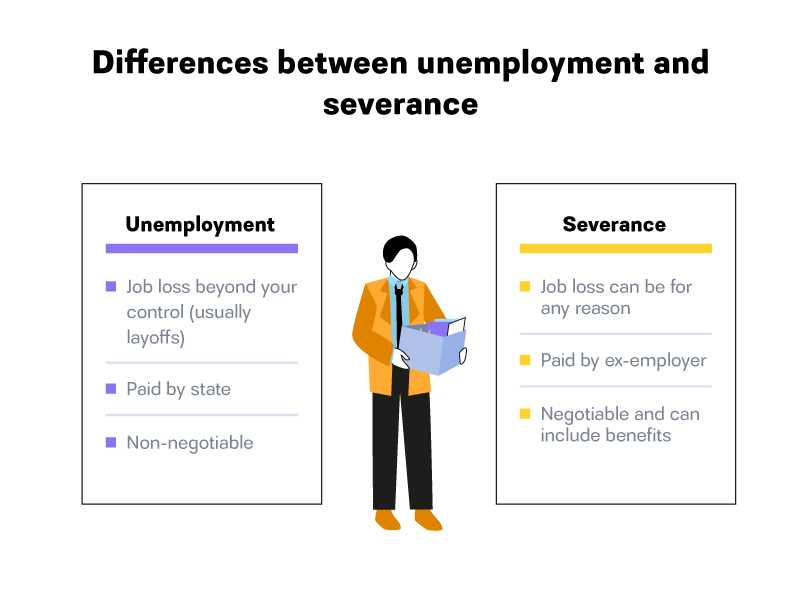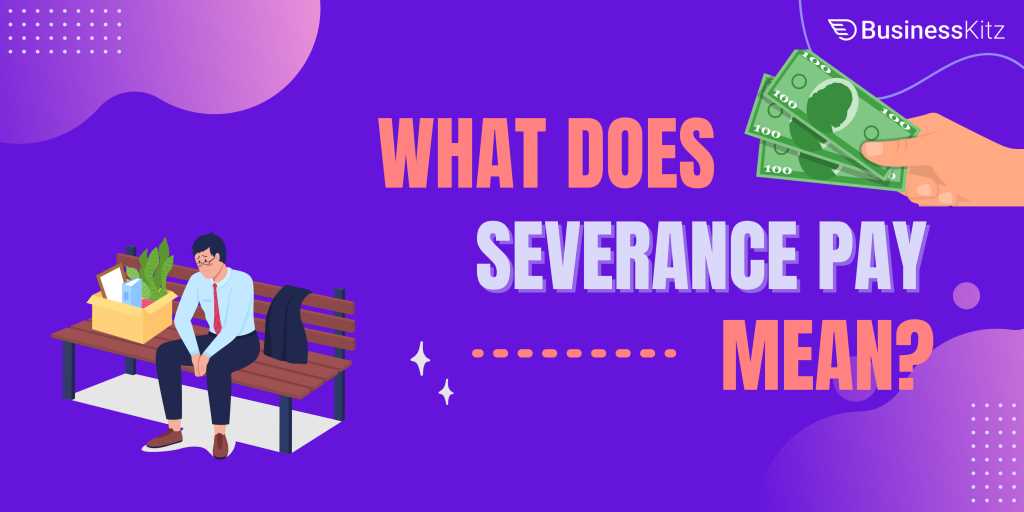What Is Severance Pay?

Severance pay is a form of compensation that is provided to employees who are terminated from their jobs, typically due to reasons beyond their control, such as layoffs, restructuring, or company closures. It is a financial package that is given to employees as a way to ease the transition period between jobs and provide some financial security.
Definition and Purpose
Severance pay is a contractual agreement between the employer and the employee, which specifies the amount of money or benefits that will be provided to the employee upon termination. The purpose of severance pay is to provide employees with a financial cushion during the period of unemployment and help them meet their immediate financial needs, such as paying bills, rent, or finding a new job.
Severance pay is usually calculated based on various factors, including the employee’s length of service, salary, and position within the company. It is often expressed as a certain number of weeks or months of salary, but can also include additional benefits, such as health insurance coverage or outplacement services.
Reasons for Offering Severance Pay

There are several reasons why employers choose to offer severance pay to their employees:
- Employee Retention and Loyalty: Offering severance pay can help employers maintain a positive relationship with their employees, even during difficult times. It shows that the company values its employees and is willing to provide support during periods of transition.
- Legal Compliance and Risk Mitigation: In some jurisdictions, offering severance pay may be required by law, especially in cases of mass layoffs or plant closures. By providing severance pay, employers can ensure compliance with labor laws and reduce the risk of legal disputes or claims.
Definition and Purpose

Severance pay refers to the compensation provided to an employee who is being terminated or laid off from their job. It is a financial package offered by employers to help ease the transition for employees who are losing their jobs. The purpose of severance pay is to provide financial support and assistance to employees during the period of unemployment, as well as to acknowledge their contributions and loyalty to the company.
The main purpose of offering severance pay is to provide a financial cushion for employees who are suddenly unemployed. It can help them cover their living expenses, such as rent or mortgage payments, utility bills, and groceries, while they search for new job opportunities. Severance pay can also help employees maintain their standard of living and avoid financial hardships during the transition period.
In addition to providing financial support, severance pay also serves as a way for employers to show appreciation for the employee’s service and dedication to the company. It is a way to acknowledge their contributions and loyalty, and to maintain a positive relationship even after the employment relationship has ended.
Furthermore, offering severance pay can help protect the employer from potential legal issues. By providing a financial package, employers can reduce the risk of employees pursuing legal action or filing complaints related to their termination. It can also help mitigate the risk of negative publicity or damage to the company’s reputation.
In summary, severance pay is a form of compensation provided to employees who are being terminated or laid off. Its purpose is to provide financial support during the period of unemployment, acknowledge the employee’s contributions, and mitigate legal and reputational risks for the employer.
Reasons for Offering Severance Pay
Severance pay is a financial package provided by employers to employees who are being terminated or laid off. There are several reasons why companies offer severance pay:
- Employee Transition: Severance pay helps employees transition to a new job or career by providing them with a financial cushion. It allows them to cover their expenses while they search for new employment opportunities.
- Employee Support: Offering severance pay demonstrates that the company values its employees and wants to support them during difficult times. It helps to maintain a positive relationship between the employer and the employee, even after the employment relationship has ended.
- Legal Compliance: In some jurisdictions, providing severance pay is legally required. Companies offer severance pay to ensure compliance with employment laws and regulations. Failure to provide severance pay when required can result in legal consequences and damage to the company’s reputation.
- Risk Mitigation: Severance pay can help mitigate potential risks associated with terminating employees. By offering a financial package, companies reduce the likelihood of disgruntled employees seeking legal action or engaging in negative behavior that could harm the company’s reputation.
- Talent Acquisition: Offering severance pay can enhance a company’s reputation as an employer of choice. Potential candidates may be more likely to consider working for a company that has a reputation for treating its employees well, even in the event of termination.
Overall, offering severance pay is beneficial for both employers and employees. It provides financial support to employees during a transitional period and helps companies maintain a positive employer brand. Additionally, it ensures legal compliance and reduces potential risks associated with termination.
Employee Retention and Loyalty
One of the main reasons for offering severance pay is to promote employee retention and loyalty. When employees know that they will receive a financial cushion if they are laid off or terminated, they may be more likely to stay with the company for a longer period of time. This can help reduce turnover rates and the costs associated with hiring and training new employees.
Severance pay can also help create a sense of loyalty among employees. Knowing that the company values their contributions and is willing to provide financial support in the event of job loss can foster a stronger bond between employees and the organization. This can lead to increased job satisfaction, productivity, and overall morale.
In addition, offering severance pay can help protect the company’s reputation as an employer. Employees who are treated fairly and receive appropriate compensation upon termination are more likely to speak positively about their experience with the company. This can help attract top talent and enhance the company’s employer brand.
Furthermore, severance pay can serve as a form of incentive for employees to perform well and meet company goals. Knowing that their efforts will be rewarded with a financial safety net can motivate employees to work harder and strive for success. This can contribute to a more productive and engaged workforce.
Overall, offering severance pay as part of an employee benefits package can have a positive impact on employee retention, loyalty, and satisfaction. It can also help protect the company’s reputation and incentivize employees to perform at their best. By providing a financial safety net, companies can demonstrate their commitment to their employees’ well-being and create a more stable and loyal workforce.
Legal Compliance and Risk Mitigation

Severance pay is not only a way for companies to show appreciation to their employees, but it also serves as a means of legal compliance and risk mitigation. By offering severance pay, employers can ensure that they are following the laws and regulations set forth by labor authorities.
In many countries, there are specific laws that govern the payment of severance to employees who are terminated or laid off. These laws outline the minimum amount of severance pay that must be provided, based on factors such as length of service and salary. By offering severance pay in accordance with these laws, employers can avoid potential legal disputes and penalties.
Additionally, severance pay can help mitigate the risk of lawsuits from disgruntled employees. When employees are provided with a financial cushion upon termination, they are less likely to pursue legal action against their former employer. This can save the company valuable time, money, and resources that would otherwise be spent on litigation.
Furthermore, offering severance pay can help protect a company’s reputation and maintain positive relationships with employees. When employees feel that they have been treated fairly and respectfully during the termination process, they are more likely to speak positively about their experience with the company. This can help attract and retain top talent in the future.

Emily Bibb simplifies finance through bestselling books and articles, bridging complex concepts for everyday understanding. Engaging audiences via social media, she shares insights for financial success. Active in seminars and philanthropy, Bibb aims to create a more financially informed society, driven by her passion for empowering others.
